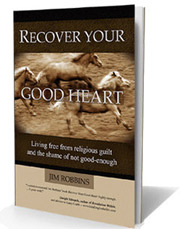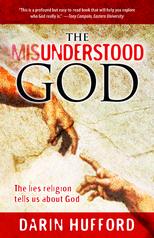What gets injured in relationship gets healed in relationship.
 Monday, October 9, 2017 at 4:00PM
Monday, October 9, 2017 at 4:00PM Because we are wounded in relationship; we are only healed in relationship.
The reason secure and connective relationships make all the difference is this: relational ruptures sever our sense of attachment to someone important to us. We experience sensations of abandonment, shame and dread when we lose connections that matter to us. Our body's alarm system can become hypervigilent; ever-watching for the next shoe to drop.
Therefore, since the damage occurred in relationship; it must be healed through relationship. Attachment and healthy bonding (or re-bonding) comes through relationship; relationship with others who are safe, present, and attuned to our emotional needs.
An interesting phenomenon occurred during WWII with the children of London, as German bombers showered explosive ordinance over London's dark skies:
Studies conducted during WWII in England showed that children who lived in London during the Blitz and were sent away to the countryside for protection against German bombing raids fared much worse than children who remained with their parents and endured nights in bomb shelters and frightening images of destroyed buildings and dead people." 1
 Children leaving London during the Blitz. Courtesy, Daily Mail.com; "Seventy years on, two-thousand children who fled the Blitz meet again." By P. Harris and B. Hale
Children leaving London during the Blitz. Courtesy, Daily Mail.com; "Seventy years on, two-thousand children who fled the Blitz meet again." By P. Harris and B. Hale
The greater loss was experienced by those children sent away from their most meaningful attachments; their families. Surprisingly, enduring raid sirens, images of bombed-out buildings and corpses was a lesser loss than losing the safety of their parents' presence.
Adults also experience wounding when they lose a sense of attachment and connection with those they love. Below is a video demonstrating the soothing power of connection for adults who learn to connect well. Dr. Susan Johnson is a pioneer in the field of Emotional Focused Couples Therapy. Here, she presents an experiment done with a couple who are her clients:
"Our attachment bonds are our greatest protection against threat." 2
Secure relationships become a safe haven for us.
......................................................................
Resources to consider:
Books:
How to Argue So that Your Spouse Listens, by Dr. Sharon May
Created for Connection, by Dr. Sue Johnson and Kenneth Sanderfer
Anatomy of the Soul, by Dr. Curt Thompson
Living from the Heart Jesus Gave You, by Dr. E. James Wilder; et al.
Websites:
Joy Starts Here/Life Model Works website
...............................................
Sources:
1. The Body Keeps the Score, by Bessel van der Kolk; p. 212
2. The Body Keeps the Score, by Bessel van der Kolk; p. 212
























